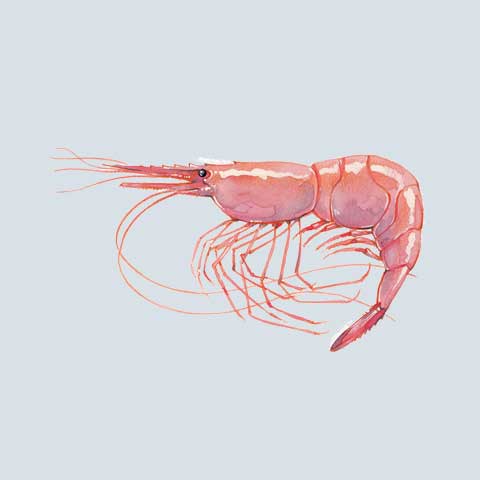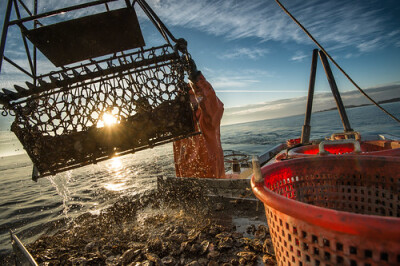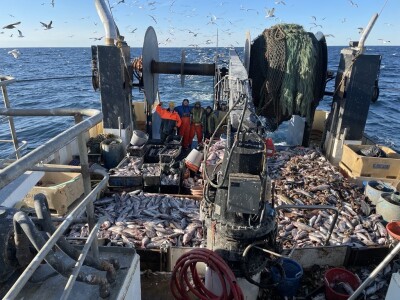Oregon shrimpers put in another great year for 2020, and indicators portend a decent season in store for 2021. Although the Oregon Department of Fish and Wildlife hadn’t tallied final numbers for the season in December, data with PacFIN reported a harvest of 43.14 million pounds for Oregon with an average ex-vessel price of 52 cents per pounds for fleet revenues of $22.59 million.
“We’re still counting our chips from this year,” says Scott Groth, the pink shrimp/south coast shellfish project leader with Fish and Wildlife, in Charleston. “But it looks pretty good overall.”
The Washington fleet, meanwhile, landed 14.29 million pounds at similar ex-vessel prices for revenues of $7.15 million. PacFIN showed no harvest data for California as of Dec. 1.
Looking back, the Oregon trawlers closed out their 2019 season with a harvest of 26.9 million pounds, about 9 million pounds less than they caught in 2018. The good news is that the 74 cents per pound the received put average ex-vessel prices at the third highest in the history of the fishery, which put the fleet revenues at $19.9 million.
Of interest to management biologists and the industry are the catch-per-unit-of-effort rates. In 2019, those ranked third lowest since 2004, meaning trawlers had to strain more water to catch the shrimp they caught. The CPUE during the 2020 season improved, according to the numbers Groth had seen.
“CPUE remained high until the end of the 2020 season, which must be a good indication for population holdover,” he says.
As for the 2021 season, which will begin on April 1 and run through Oct. 31, trawlers can hope for a season on par with last year’s.
“We did see some zero-age shrimp and definitely had a good age 1 class this year,” says Groth. “Those will be age 1 and 2 respectively next year, and they were both stronger than average.
“Our environmental indicators are good; so I’d expect a decent season next year, hopefully anywhere near as good as 2020, without the covid and the politics.”







